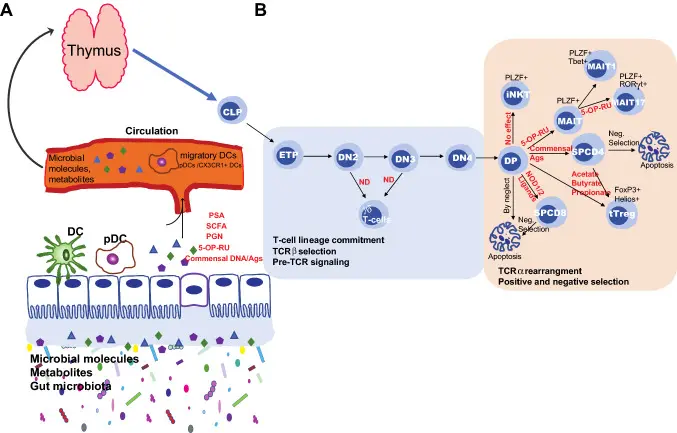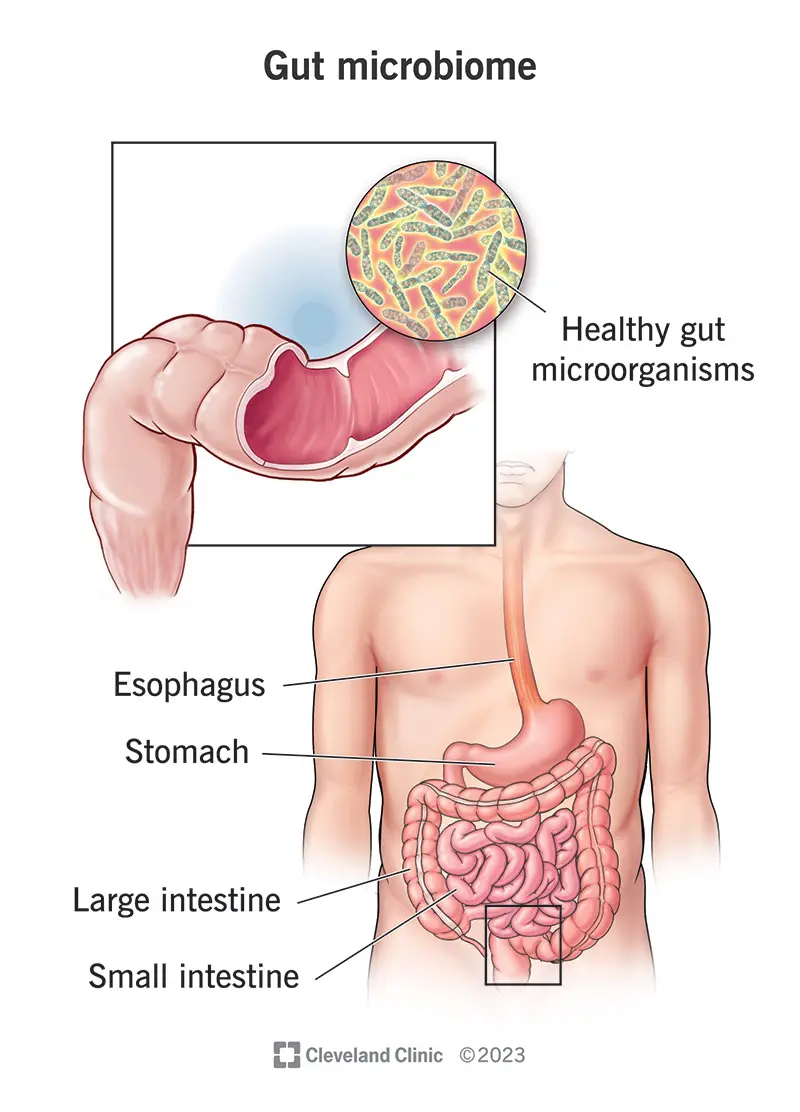Most people see the gut and the immune system as two separate entities. But groundbreaking research is revealing something surprising:
The gut microbiome may directly influence thymic stem cells and immune development.
Your thymus is where T-cells are trained, and it depends on stem cells to keep your immune system strong. Meanwhile, your gut microbiota produces molecules that can affect everything from inflammation to cellular regeneration.
The effect of microbes, microbial molecules, and metabolites on the development of T cells in thymus.
Your intestines house nearly 70% of your immune system this area is known as GALT (gut-associated lymphoid tissue). The bacteria living in your gut produce metabolites like short-chain fatty acids (SCFAs) including butyrate, propionate, and acetate that help regulate immune function.
These gut-derived molecules can:
- Promote anti-inflammatory T-regulatory cells
- Support naive T-cell production
- Influence stem cell niches, including those in the thymus
This scientific review examines the intricate relationship between the human microbiota (the community of microorganisms living within us) and the immune system.
The gut microbiome consists of diverse bacteria, viruses, fungi, and other microbes residing in the gastrointestinal tract. These microbes contribute to essential functions, including:
- Digestion and nutrient absorption
- Production of vitamins like B12 and vitamin K
- Regulation of inflammation
- Communication with the nervous and immune systems
Maintaining a balanced gut microbiome is crucial for overall health. Disruptions, or dysbiosis, have been linked to various conditions, including autoimmune diseases, allergies, obesity, and even mental health disorders.
What is the Thymus and Thymic Stem Cells?
The thymus :
The thymus is a small gland located behind the sternum, central to the development of the immune system. Its primary function is to produce and mature T-cells, a type of white blood cell essential for adaptive immunity.
Thymic stem cells :
are specialized progenitor cells within the thymus that give rise to T-cells. However, the thymus undergoes involution with age, gradually shrinking and reducing T-cell production. This decline contributes to weakened immunity and higher susceptibility to infections in older adults.
Emerging research suggests that the gut microbiome influences thymic stem cell function and thymus regeneration. The mechanism involves metabolites produced by gut bacteria, such as short-chain fatty acids (SCFAs) including butyrate, propionate, and acetate.
These metabolites can:
- Travel systemically to the thymus
- Promote anti-inflammatory signaling
- Stimulate production of cytokines like interleukin-7 (IL-7)
- Support thymic stem cell survival and T-cell maturation
Studies in animal models demonstrate that disruption of gut microbiota through antibiotics or poor diet leads to accelerated thymic involution and reduced immune cell output. Conversely, restoring a healthy microbiome can reverse these effects, indicating a strong gut thymus axis.



